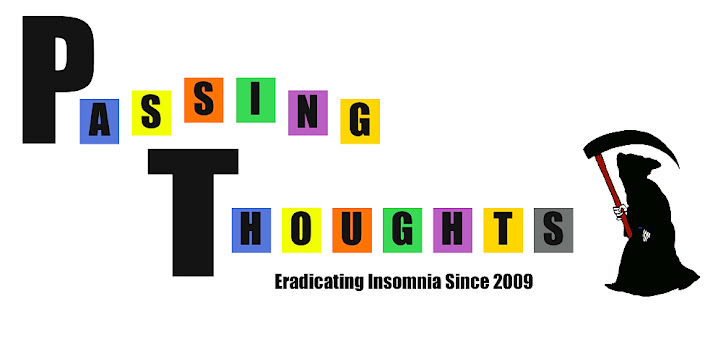 During the 50-game suspension that Major League Baseball levied against Los Angeles hitting star Manny Ramirez, he was the consummate dodger. He didn't even come near the media.
During the 50-game suspension that Major League Baseball levied against Los Angeles hitting star Manny Ramirez, he was the consummate dodger. He didn't even come near the media.But, now that his suspension is through and he's back donning the white and blue, should we forgive and forget?
After all, he's hardly the first slugger to be linked to steroids. The drug has become so popular that sooner or later I expect Pez Candy, Inc. to come up with a new Slugging Stars on Steroids line of pez dispensers. They would sell themselves: Buy them all! Eat the curiously strong candy! Hit harder home runs!
Unfortunately, that ever-growing lineup could prove to be longer than a gravity-defying shot over the centerfield fence: Barry Bonds, Sammy Sosa, Alex Rodriguez, Mark McGwire, Gary Sheffeld, Rafael Palmeiro, Jose Canseco, Mike Piazza, Mo Vaughn and... you know what? It might just be easier to name the home run leaders who HAVE NOT been connected to the controversy.
And that's not even counting the Fastball Faker series, which would include Roger Clemens, Andy Pettitte, John Rocker, and Darren Holmes to just name a few.
For those who have retired from the game, the worst thing that can happen to them if they are implicated now is that they will be denied membership into the Hall of Fame or shunned from Major League Baseball. To me, that's just a slap in the wrist. Sure, it will hurt those who had so much pride they were willing to inject every available advantage into their bodies, but those players already enjoyed long, profitable careers where they were often honored and revered.
So, that just leaves MLB to punish the current offenders. Looking at the most recent burning example, however, it seems to me that the severity of Manny's suspension suggested he was guilty of a mere misdemeanor, not a full-fledged felony.
Sure, it cost Ramirez nearly $8 million in salary, but that's a drop in the bucket for a man who is contracted to make in the ballpark of $25 million this season. That's one season... in a career that has almost spanned two decades. Suffice to say, Manny will never starve or have to worry about the dreaded high costs of dreadlock maintenance.
Basically, he misses out on one-third of a season, one-third of his salary, and it's likely that his consecutive string of All-Star appearances (he last missed out in 1998) will end. Boo hoo.
I could add that his image will suffer as a result, as well, but even when it was first announced that he had tested positive for elevated testosterone levels, the general public's consensus was: "That's Manny just being Manny."
Again, one drop in a very big bucket.
The man's list of nefarious stunts include: fighting teammate Kevin Youkilis in the dugout during a game, shoving a Boston Red Sox employee to the ground when he failed to meet his game ticket request and purportedly faking injuries in order to facilitate being traded last season.
I really don't think steroid use is going to push him over the edge into buffoon territory. He's been living there quite happily for some time now.
Heck, the suspension didn't even harm the Los Angeles Dodgers, either. The team was locked in for the best record in the majors when the suspension began and they still hold that position today.
With Manny, the Dodgers are 23-9 (.718) and without him they are 29-21 (.580). Overall, the team is 52-30 (.634) and leads the NL West by 7 1/2 games. Yeah, looks like the Dodgers and Manny have really paid a heavy price out there in Mannywood.
The sad thing is, the only victim that truly has suffered during the headline-grabbing frenzy is Major League Baseball itself. The reputation of the game has been sullied for quite some time now, but this is precisely why it never has a chance to recover. Every few years a new marquee name is added to the list of implicated steroid users and the game's popularity plummets like a nasty Brandon Webb sinker.
MLB needs to get a lot tougher with its penalties against players who cheat (whether they are the 25th man on the roster or the resident superstar). They also need to clearly define which supplements are acceptable and which are not.
If a place likes GNC or the Vitamin Shoppe can sell it over-the-counter and it is still considered to be contraband, then shouldn't there be a big-ass warning so even the densest major leaguers cannot feign ignorance? Shouldn't all of the players' treating physicians have copies of these guidelines to avoid the slightest possibility of a mix-up?
Should this issue really be this complicated? Of course not. But, as long as jerseys like the Dodgers #99 sell like proverbial hotcakes, MLB will inevitably factor in the economic realities of its strict anti-drug policies. The bottom line is simple. The less superstars there are on the field means less attendance and merchandise sales at the ballpark.
That should not matter one damn bit, but the realist in me believes it matters a whole Hell of a lot.
Perhaps MLB should ask itself: what is more important, money or integrity?
If you ask me, you can't have the first one without the second... not anymore. Fans are tired of the nonsense. The less integrity there is in baseball, the more fans become apathetic and fed up. Eventually, even the most die hard baseball lovers will finally leave the game they have cherished ever since they first gathered at the sandlot during the dog days of summer.





No comments:
Post a Comment